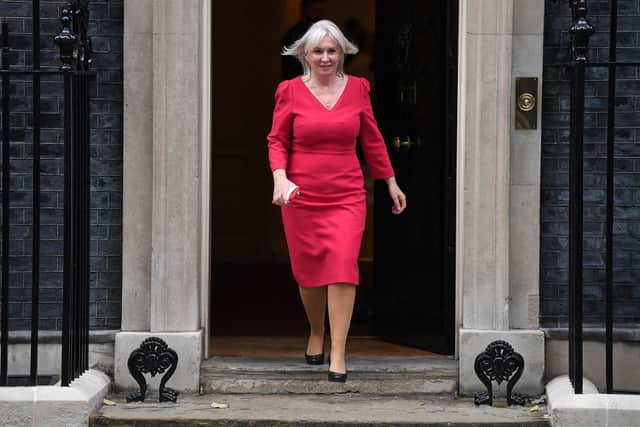Curious case of Church intervention in the Channel 4 sell-off - David Behrens
The archbishops of York and Canterbury led the charge, writing that Boris Johnson and Priti Patel’s plan did not “stand the judgment of God”, and was a stain on Britain’s reputation for charity and Christian compassion.
Whatever your view on this – and on the implicit, insulting suggestion that East Africa is not the sort of place anyone should be made to live – it’s a dangerous game to play.
Advertisement
Hide AdAdvertisement
Hide AdThe clergy has put forward no alternative to the deportation plan. And in a country that voted to Get Brexit Done for reasons not unconnected, they know as well as the Government that it is not a vote loser.


That doesn’t necessarily make it right. But if there is to be a battle of Church against State, the winner is already apparent.
At least asylum is an ethical debate on which religious leaders are instinctively enjoined. The same is not true of some of the other issues on which they have been outspoken lately.
Last Monday, the bishops of Leeds and Ripon were among those joining the opposition to the Government’s plan to privatise Channel 4. It was “ideologically driven and therefore shortsighted and wrong”, wrote the Rt Reverend Nick Baines in Leeds.
Advertisement
Hide AdAdvertisement
Hide AdLeaving aside the lack of logic in that argument – since when has ideology been wrong, and if it is, what does it say about the Church itself? – this was an extraordinary intervention, especially when you consider Channel 4’s history.
It was in 1995, under Michael Grade’s leadership, that it broadcast Martin Scorsese’s deeply divisive film, The Last Temptation of Christ, which depicts Jesus as vulnerable to fear, doubt and, especially, lust. The BBC’s governors had previously vetoed it, and when Grade went ahead, arguing that it was a sensitive work which could be reasonably classified as art, the hounds of heaven were unleashed upon him.
The Church of England thought it was blasphemous, and Christian business groups threatened an advertising boycott. Grade’s mailbox was avalanched by complaints from people who hadn’t seen it, and he was dubbed Britain’s “pornographer in chief” in some religious quarters for his alleged support of dubious causes.
A few years earlier, his Channel 4 predecessor, Jeremy Isaacs, had also felt the wrath of God’s representatives for screening Derek Jarman’s religious epic, Sebastiane, which many in the Church deemed to be not only blasphemous but also pornographic in its portrayal of the martyrdom of St Sebastian. And let’s not forget the furore over Monty Python’s Life of Brian, which the then Bishop of Southwark, Mervyn Stockwood, laughably denounced. Channel 4 was the first to bring that to TV, too.
Advertisement
Hide AdAdvertisement
Hide AdIn none of those cases was it the Church’s view that freedom of artistic expression justified transmission – yet that is exactly the principle which Mr Baines and his colleagues now find themselves advocating.
Is this welcome progress, or shameless hypocrisy? In the spirit of charity, I’ll assume the former. I certainly agree with the bishops that Channel 4 should be left alone; it is a commercial and critical success that needs no interference from an uninformed Culture Secretary – who, by the way, is driven by political opportunism, not ideology. But neither does it want to be beholden to fair weather friends from within a Church that has been consistently on the wrong side of broadcasting history.
I’m not alone in thinking the clergy should keep out of domestic politics. Last week, a poll claimed that nearly two-thirds of voters believed bishops should no longer have automatic seats in the House of Lords. Among younger adults the figure was higher still.
Fewer of us would argue against the Church retaining at least some role in the nation’s moral leadership – yet when we needed spiritual guidance more than ever from within our lockdown bubbles, there was little of it to be found. It was a brief moment in time for the Church to reach out anew to a lapsed but lonely flock. When it failed to seize the day, it became less relevant than ever.
Two years on, it is left with only its moral compass intact. But what use is that if everyone else is looking the other way?
